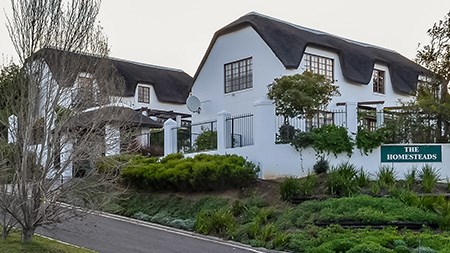What does Finance Minister Trevor Manuel’s budget mean for your property? According to the pundits, at least, a considerable amount less than they hoped for. But Manuel still made the right moves in improving confidence among South Africans. And, by relieving some pressure on cash-strapped consumers, he could lift the housing market in the long run.
Manuel’s most important change for property owners is his decision to raise the Capital Gains Tax exclusion on the sale of a primary residence. This now increases to a gross value of R2m, from R1.5m before. And this should, according to Andrew Golding, CEO of the Pam Golding Property Group, “assist home sellers”, who now won’t be liable for CGT if their property is sold for less than R2m.
The biggest disappointment came in Manuel’s decision to not increase the transfer duty threshold. Currently, you pay no transfer duty on a property valued up until R500 000, you’ll pay five percent of the value above R500 000 up to R1m and, for anything above R1m, you pay R25 000 and eight percent of the value above R1m. Analysts expected Manuel to increase the threshold to R750 000 – which would have lowered entry costs for home ownership. Golding says this would make buying a home more affordable, particularly for first time buyers. “This would be a reasonable request given the fact that, despite the current status of the property market, the cost of acquiring a home has increased significantly.” CEO of ERA South Africa property group Gerhard Kotzé agrees, saying this failure is “one of the major impediments to sectoral recovery”.
According to Kotzé, Manuel also failed to tackle the issues hurting the property industry. The sector’s been hampered by soaring building costs and shortages of materials and skills. He says questionable building standards also exist, along with long planning delays. Kotzé says: “We should be using the quiet times of the moment to sort these matters out, but they require interventions at central, provincial and municipal level.”
On the upside, the budget’s likely to serve as a good confidence booster – which should bode well for the property market down the line, says Homenet CEO Martin Schultheiss. Personal tax relief for the year will amount to R13.5bn – a surprise after analysts expected taxes to either stay level or increase. And this relief, along with falling inflation and interest rates, will have a spin off effect in that homeowners will be able to cope far better with their existing debt and bonds,” says Berry Everitt, CEO of Chas Everitt International. It’ll also take the pressure off those who may have sold their properties too quickly in the past.
But while things are looking up, Everitt warns: “Make no mistake, the year ahead will be a tough one and the real estate industry will have to consolidate.”
As published in issue 82 of  .
.
Get your 3 FREE issuesof MoneyWeek Magazine. Every week MoneyWeek brings you the best share tips from financial experts, the smartest ways to profit from the hottest sectors in the market and the latest investment opportunities. Subscribe today and claim your 3FREE issues byclicking here, and entering your details. Be sure not to miss out on this opportunity today!




